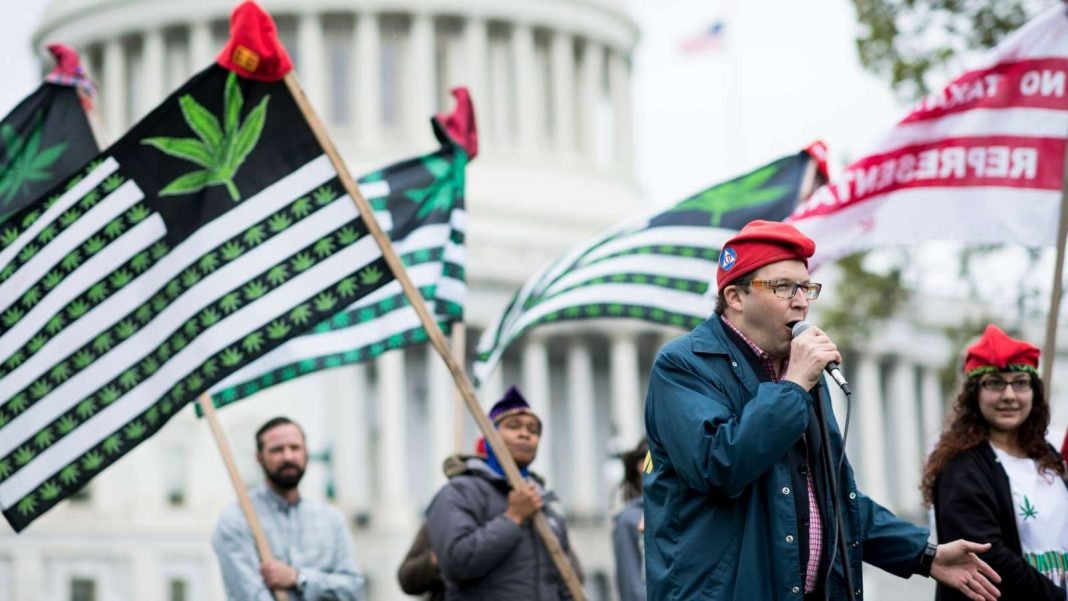New York has legalized recreational marijuana, after years of failed attempts and stalled efforts.
State lawmakers approved a bill on Tuesday that legalizes the drug for adults 21 and older and moves toward the creation of a potential $4.2 billion industry that could become one of the nation’s largest markets. Gov. Andrew M. Cuomo signed the bill into law on Wednesday.
Is recreational marijuana legal in New York?
Using it is now legal. Selling it will be legal too, once regulations are in place.
What does legalization mean for New Yorkers?
New Yorkers are now allowed to possess up to three ounces of cannabis for recreational use or 24 grams of concentrated cannabis, such as oils derived from a cannabis plant.
People who are 21 and older are allowed to use, smoke, ingest or consume cannabis products; they can also give them to others who meet the same age requirement.
At home, people will be permitted to store up to five pounds of cannabis, but they will have to take “reasonable steps” to make sure it is stored in a secure place.
There are penalties, ranging from a simple violation to a felony, for possessing more than the permitted amount of cannabis and for selling the drug without a license.
Where is marijuana allowed?
Liz Krueger, the bill’s sponsor in the Senate, said people are legally allowed to smoke in public wherever smoking tobacco is legal. “As far as right now, the law passing today, if you can smoke tobacco there, you could smoke marijuana there,” she said on Tuesday.
Smoking cannabis is not permitted in schools, workplaces or inside a car.
Ms. Krueger said localities, as well as a new state cannabis agency, could create rules to more strictly regulate smoking cannabis in public. Smoking publicly where it’s not permitted will subject people to a civil penalty of $25 or up to 20 hours of community service.
An officer, however, is not allowed to use the smell of cannabis as a justification to stop and search a pedestrian.
People are legally allowed to smoke cannabis in private residences, as long as the landlord doesn’t prohibit you from doing so, as well as in hotels and motels that permit it.
Club-like lounges or “consumption sites” where cannabis — but not alcohol — can be consumed will also be permitted in several months, when regulations are in place. Municipalities could opt out of allowing these sites.
How can I buy it?
The law creates retail licenses, paving the way for brick-and-mortar dispensaries where people can purchase cannabis products. Localities can opt out of allowing dispensaries and will have until the end of the year to do so.
Consumption at dispensaries will be limited to businesses that have an on-site consumption license.
The state will also issue licenses for the creation of cannabis delivery businesses, which means people will be able to get the drug delivered to their homes, something localities would not be able to block.
What about impaired driving?
It remains illegal to drive under the influence of marijuana, just as it’s illegal to drive while intoxicated by alcohol, and the police will still be able to pull people over who they believed were impaired.
An officer can use the smell of burned cannabis as a reason to suspect that a driver is under the influence, but he or she is only allowed to search parts of the car that are readily accessible to the driver, so not the trunk, for example.
Unlike with alcohol, there is currently no easy way to quickly and reliably measure whether a person is under the influence of cannabis, especially since traces of the drug can stay in someone’s system after the high has worn off.
So under the new law, the Health Department will be required to look at emerging devices that could potentially allow officers to use a saliva test to detect whether a driver is high.
Why did this take so long?
Mr. Cuomo and Democrats in the State Legislature tried several times to legalize marijuana in recent years. But each time, efforts unraveled.
In 2019, for example, the plan for legalization collapsed as disagreements over how to regulate the industry and how revenue dollars should be controlled, along with hesitation from moderate lawmakers, could not be overcome.
Mr. Cuomo vowed last January — and again this year — to finally push the bill over the line.
The efforts recently gained momentum, however, when they received a boost amid Mr. Cuomo’s recent scandals. Striking a deal for legalization became a higher priority for the governor, several lawmakers and lobbyists believe, as he sought to shift attention away from his compounding crises.
The new dynamic prompted Mr. Cuomo’s team to concede on many issues they had previously held the line on, such as how the tax revenue would be distributed, leading to a deal that more closely reflected Democratic lawmakers’ wishes.
What about other states?
More than a dozen other states and Washington, D.C., have taken similar steps.
In New Jersey, Gov. Philip D. Murphy signed into law three bills last month that permit and regulate the use of recreational marijuana. It became the most populous state in the Northeast to opt for legalization.
Penalties for underage possession were also eased, with written warnings and referrals to community services instead of harsh fines or criminal punishments.
Legal sales in New Jersey, however, remain at least several months away.




